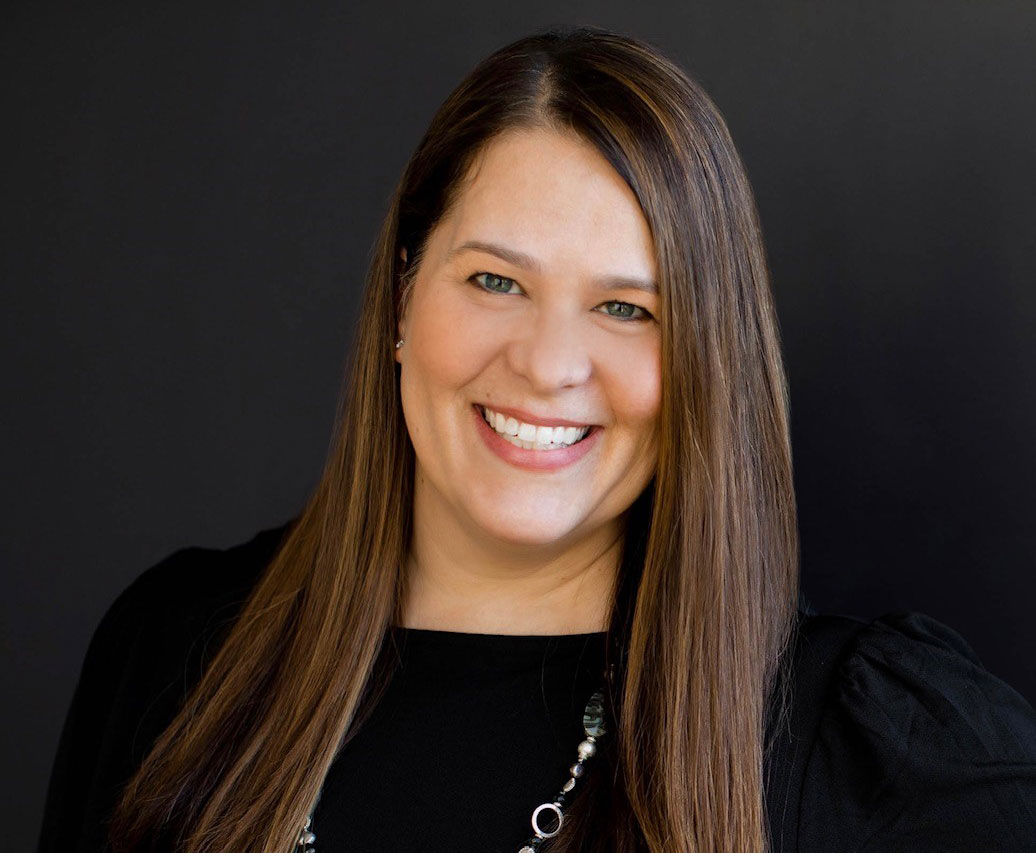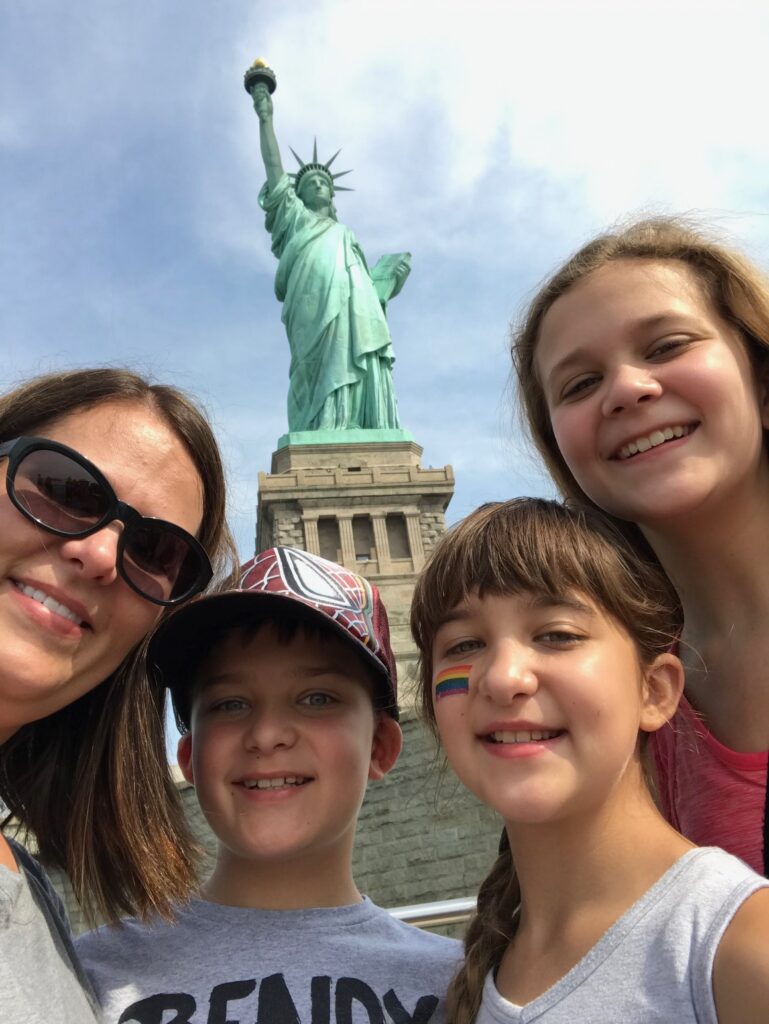Guest commentary: Bearing the brunt of the breakup: Divorce’s unequal toll on women

BY JODY GIFFORD
My parents divorced when I was 6 years old. I still remember coming home from school one day to find that my dad had moved out — his ratty recliner absent from its spot in our living room and his favorite jacket missing from the hook by the back door.
I wasn’t old enough to understand what was happening when my mom explained that they were getting a divorce. I only knew my dad didn’t live where I did anymore. As I got older, I began to understand why they weren’t together. A decade after their separation, they still argued constantly, and could barely stand to be in the same room together. It was clear that the hurt between them ran deep.
I learned a lot of truths growing up in a single-parent home. The first is that — without excuse or fanfare — single moms get things done. We didn’t have a lot, and my mom often worked two or three jobs just to pay the rent and put food on the table. I often went without the “wants” — material things, extracurriculars, her time, etc. — just so I could have the “needs.” It was a complicated but necessary struggle, and I can see now, the strain that must have put on my mom. She always seemed to figure it out. My childhood wasn’t great, but I had what I needed to survive, and it taught me that like my mom, I could do most things myself.
In the 1980s, this arrangement was not uncommon after divorce. Mothers, despite income disparity and their traditional roles in the home, got sole custody in 80% of custody cases. Dads, the traditional breadwinners of the family, paid more child support and only got sporadic visitation.
That brings me to the second truth about growing up in a single-parent home — children need their dad. Despite my parents’ custody agreement, I was fortunate to have a doting dad who was a model of independence and ingenuity. He was consistent, engaged and involved, and he convinced me that I could do absolutely anything I set my mind to. He taught me how to build and fix things, to solve problems, to be bold and unapologetic. He said I was headstrong and stubborn, but those were two of his favorite things about me.
You’d think these contrasting examples would have soured me on the very idea of marriage and parenthood, but they didn’t. Instead, I vowed (no marital pun intended) to do things differently when/if I got married. I’d marry someone who shared my values, respected my accomplishments and genuinely wanted me to succeed. I’d raise children with someone committed to being a good father, a good person and an equal co-parent. We’d be better communicators and tackle our issues before they grew into arguments. We’d be more mindful partners and mutually dedicated to our growth as a couple. Together, we’d build a life that differed from that of our parents. Together, we’d break the cycle of dysfunction that plagued the unions of so many who had come before us.
When I got married in 2004, while it wasn’t explicitly written in ink, that was my vow. And for a while, I thought maybe we were on the same page, my husband and me. But after three kids in three years, including a set of twins, it became clear that we were not. My life started to look a lot like the stereotypical housewife of days gone by. Despite being college-educated and active in the workforce, I gave up my career to become a stay-at-home mom. While my husband continued his career climb, I was carrying the entirety of the mental load at home. Instead of attending editorial meetings, I was attending school conferences, planning birthday parties and shuttling kids to and from extracurricular activities. Rather than gathering bylines, I was signing field trip permission slips and birthday cards.
As much as I loved my children, some days I didn’t recognize myself. Even when I went back to work full time, it was like I never left home. I’d punch out of my 9 to 5 only to punch in for the afternoon/night shift at home. I was exhausted to my core and screaming for help.
By 2016, the situation was untenable. By 2018, we were divorced, and for the first time in 17 years, I was making decisions for myself again. It was both liberating and terrifying.
But divorce isn’t the happy ending many think it will be. For women especially, it’s a complex and emotionally charged experience fraught with unique social and emotional challenges. Divorce brings up feelings of grief, anger and uncertainty in some instances. It can be especially devastating if you’re dealing with infidelity or deception. While both men and women experience these emotions, societal expectations and gender norms can make them worse for women. They may also face social stigma, feelings of guilt or shame, and a loss of identity tied to their marital status. Managing child care and single parenthood can add further stress and emotional strain.

In many cases, women become primary caregivers and carriers of the mental load after divorce. While rewarding, this role comes with significant responsibilities and demands, affecting financial stability, career advancement and personal time. Balancing single parenthood with other aspects of life can be exhausting and overwhelming if you don’t have an active or engaged co-parent.
And let’s not gloss over the financial burdens of divorce. Not only is the divorce itself potentially costly, but Forbes points out that women suffer a more significant drop in their standard of living after divorce than men that is “a direct reflection of their decreased financial wealth.” One study found that a woman’s standard of living dropped by almost 50%, while a man’s standard of living only dropped about 20% after divorce. And while child support and alimony may temporarily increase a woman’s income, these are short-term solutions that don’t take into account the long-term needs of women and children.
Throw in the gender pay gap, career interruptions for child care and potential lack of access to spousal assets, and it’s no surprise that divorce can lead to financial instability, increased poverty risk and difficulty maintaining housing, especially for single moms. Retirement savings may be negatively affected due to some of these factors, too.
It’s a tough pill to swallow when happiness or financial security are your only options. The day I asked for a divorce, I hadn’t really considered either. I didn’t wake up that morning expecting to upend my life, or the lives of our children, and I’d be lying if I said that choosing to break free from an unhappy, unhealthy marriage was easy. It wasn’t. But in doing so, I started down the path toward a happier and more financially secure life.
The first few months after we separated were spent untangling our joint finances. I paid the bills, bought the groceries, ran the errands, scheduled regular home maintenance, etc., so I was familiar with what it took to run a home. Right away, I created a budget that took my income and expenses into account, and I followed it to a T.
Because stability starts with secure housing, I called a mortgage lender and had her run the numbers — could I afford to buy a house? I could, and I did. It wasn’t huge, but it was near our old neighborhood and close to school and friends so the kids’ lives could remain as close to normal as possible.
I had a stable job, and I stuck with it until I realized there was more out there for me. I found a better position with better benefits that offered more growth opportunities. I worked fewer hours, had more flexibility and found a group of like-minded people who supported my work and championed my ideas.
I saw a therapist and worked with a life coach. I worked out, spent time with friends and traveled with the kids. I volunteered, joined a board or two and participated in two leadership programs. I even started graduate school.
One of the most pivotal moments post-divorce came after a meeting with my financial planner. When I learned that I might be able to retire comfortably one day, I cried in my car in the parking lot. My mom was never able to retire.
I know my experience isn’t the same as the next person’s, but six years ago, I never imagined life after divorce could be this good. I’m stronger mentally, more confident and more motivated to accomplish my personal goals. I’m a better mom, a better friend, and more loving, empathetic and understanding. It has shaped how I interact with the people around me in positive and affirming ways, and there’s nothing more valuable than that.
By day, Jody Gifford works in marketing and communications for a local malpractice insurance company. By night (and most weekends), she’s a busy mom, a volunteer and fierce ally of the LGTBQ community. She is in graduate school at Drake University and is a member of the Iowa Writers’ Collaborative. You can read more of her writing on Substack at https://jodygifford.substack.com/.

